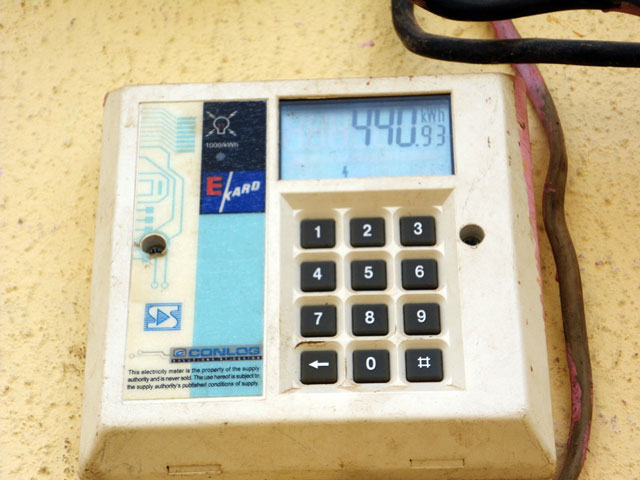Experts outline path to viable state electricity markets

Energy sector leaders have been discussing how Nigerian states can develop commercially viable electricity markets, following the reforms introduced by the 2023 Electricity Act.
The experts convened in Abuja for Nextier’s 105th Power Dialogue, hosted by The Electricity Hub and titled “State Electricity Markets: Unlocking Commercial Viability,” which was moderated by Osefan Anegbe, a lawyer and energy consultant.
The power dialogue featured a panel of experts, including the Vice-Chairman and Commissioner for Market Competition and Rates at the Nigerian Electricity Regulatory Commission, Dr. Musiliu Oseni; Chairman and CEO of the Enugu Electricity Regulatory Commission, Chijioke Okonkwo; and Ujunwa Ojemeni, Senior Policy Advisor for Energy Transition and Technical Assistance Delivery at E3G.
In a statement issued on Tuesday, Oseni noted that Nigeria’s power sector reform began in 2003, distinct from the regulatory regime initiated by NERC in 2005.
These efforts culminated in the 2013 reform, where major segments of the power value chain were handed over to private investors.
He highlighted the significance of the March 2023 constitutional amendment under President Muhammadu Buhari and the subsequent signing of the new Electricity Act by President Bola Tinubu, which now empowers states to regulate electricity within their jurisdictions.
He emphasised that this devolution grants states advantages such as regulatory oversight, consumer complaint resolution, and decentralised tariff review processes.
He, however, noted that these reforms are not prerequisites for state-level investments, citing examples like Ibom Power, owned by Akwa Ibom State, which existed before the amendments.
Oseni explained that NERC is working to transfer its regulatory learnings, including successes and mistakes, to state regulators to support their development.
NERC has held three engagements with state regulators this year alone.
States are also adopting existing NERC regulations, such as embedded generation and mini-grid frameworks, to suit their local contexts.
He pointed out that while the 2023 Electricity Act allows franchising arrangements between distribution companies and private investors, state regulators can now oversee these agreements to ensure high-quality power supply.
Speaking on subsidies, the NERC vice-chairperson stated that while they are essential for supporting vulnerable customers, “the most sustainable subsidies are those driven by market mechanisms, not government funding.”
On his part, Chijioke Okonkwo lauded the constitutional amendment and 2023 Electricity Act, which offer states a real opportunity to take control of their energy futures and address their energy needs. He reiterated Enugu State’s commitment to the reforms.
He noted that, historically, investments by state and local governments, communities, and progressive actors were transferred to distribution companies, limiting states’ ability to operate actively in the sector.
The current reforms, however, allow states to create enabling environments and facilitate competitive electricity markets.
Okonkwo outlined Enugu State’s vision to decentralise power generation and open opportunities for new players, particularly in medium-voltage distribution and last-mile infrastructure.
As outlined in its policy document, Enugu state aims to move from an inherited capacity of approximately 70MW in 2023 to 700MW. To achieve this, the state has simplified its licensing processes and tariff model, enabling developers to project returns on investment over a 20-year licensing period.
He explained that, “Enugu’s electricity law established a regulatory commission and an electrification agency.
“The latter served as the state’s investment arm, providing funding guarantees, land access, and right-of-way support for developers.”
Furthermore, Okonkwo revealed that the government is leveraging 260 ongoing smart code projects across the state’s wards as anchor loads to electrify remote communities, including the 113 communities in the state that remain unserved or underserved.
In her remarks, Ujunwa Ojemeni reinforced that electricity is foundational to national development, describing the decentralisation of electricity regulation as a transformative opportunity for states to craft their solutions.
Speaking on strategies for unlocking financial stability, she emphasised that “commercial viability must balance consumer affordability and profitability for producers and distributors.”
Ojemeni identified key constraints to maintaining a stable market, including tariffs, technical losses, collection inefficiencies, currency risks, and regulatory instability. To create a viable electricity market, she urged states to ensure regulatory independence, data-driven decision-making, and clear accountability mechanisms.
She shared models that have catalysed decentralised investment, including clear risk allocation, community ownership, and innovative financial mechanisms.
She recommended public-private partnerships, dedicated state electricity agencies, and result-based financing models where grants are disbursed based on verified performance.
She also highlighted the importance of consistent regulatory frameworks that survive political transitions and build investor confidence. She advocated for streamlined permitting processes, ideally through a one-stop shop, to help investors understand demand clusters, project processes, and investment opportunities.
Also, Osefan Anegbe explained that the electricity market operates as a platform where electricity is bought and sold between generators and retail distributors, serving end-users.
She added that, “Nigeria now has the potential for 37 state-level electricity markets, one for each of the 36 states and the FCT, alongside the Federal market. As of January 2025, 10 states have received regulatory transfer orders from NERC, and four have already completed the transition.”
You may also like...
The Economic Cost of Loneliness

Loneliness is silently draining billions from the global economy. This essay uncovers the hidden financial toll of socia...
Lando Norris's Fiery F1 Love Life: Girlfriend Margarida Corceiro Steals Spotlight

Formula One star Lando Norris has rekindled his romance with Margarida Corceiro, publicly confirmed by a kiss after his ...
Fever's Dire Injury Report: Caitlin Clark's Slow Return Impacts WNBA Season

Indiana Fever guard Caitlin Clark has faced an injury-plagued second WNBA season, missing 19 games and the All-Star Game...
007 Race Intensifies: New Bond Picks Emerge, Writer Revealed for Next Blockbuster!

The search for the next James Bond intensifies with Callum Turner emerging as a frontrunner, while acclaimed writer Stev...
Horror Thriller 'Weapons' Unleashes Critical Hype & Jaw-Dropping Premiere Moments!

Zach Cregger's new horror film "Weapons" delivers a chilling mystery about vanishing children, earning critical acclaim ...
Ozzy Osbourne's Final Days: Tributes Pour In As Rock Legend Passes

Heavy metal legend Ozzy Osbourne, who passed away recently at 76, continued to make news posthumously with revelations o...
Taylor Swift's 'The Life of a Showgirl' Album Drops, Shaking Up Music World!

Taylor Swift has officially announced her 12th studio album, "The Life of a Showgirl," during her debut appearance on Tr...
Pete Davidson's Paternity Dream: Star Set to Welcome First Child

Comedian Pete Davidson and model Elsie Hewitt are expecting their first child, a joyful announcement made by Hewitt on I...


